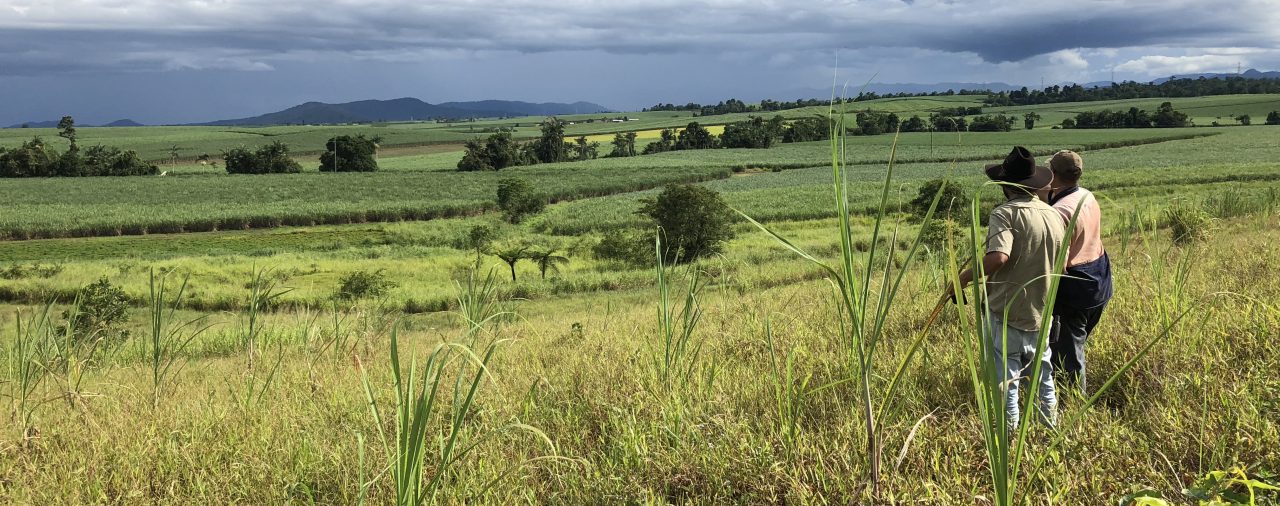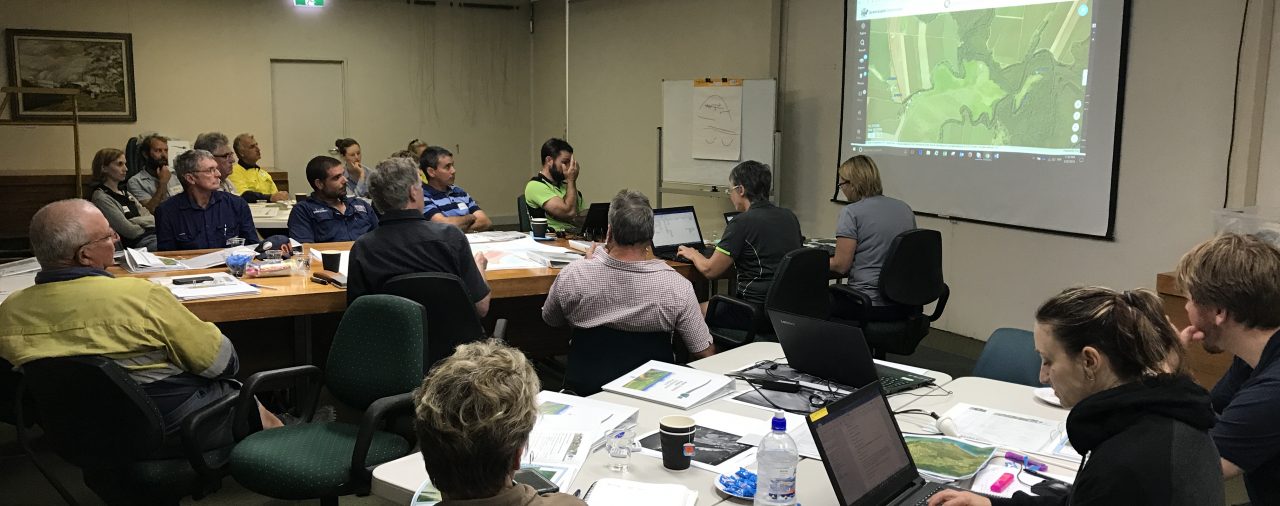By Monica Haynes, Terrain
The Wet Tropics isn’t called the Wet Topics for nothing, but heavy rain didn’t stop more than 100 people ’walking’ local landscapes recently to better understand how water catchment systems work.
The Wet Tropics Major Integrated Project (MIP) has organised a number of ‘Walking the Landscape’ workshops, which have so far been held in the Banyan, Syndicate, Boar, Brick and Michael, and Euramo areas in the Tully catchment, and Moresby and East Palmerston in the Johnstone catchment.
The workshops bring together growers, industry and community members in priority subcatchments, as part of the MIPs investment in catchment repair and treatment systems.
Local landscape knowledge is integrated with interactive maps to look at the topography, groundwater, geology and soil types, and how these affect water flow and land use.
Over the next three years the MIP will trial and monitor repair and treatment technologies that can potentially reduce the load of nitrogen, pesticides and sediment entering the Reef lagoon.
The technologies include bioreactors, constructed wetlands, sediment basins and riparian buffer zones—some of which have never been trialled before in the Wet Tropics.
Each technology needs different landscape conditions to work properly.
With landholder input, ‘Walking the Landscape’ helps work out what might work best, and where.
Sandra Henrich, the Basin Coordinator for the Johnstone catchment, said the MIP is a water quality project with a difference.
“We’ve known right from the start that the people who live and work here are the best people to decide what happens in the catchment.”
“You can’t learn this stuff from books. This sort of highly detailed local knowledge is incredibly valuable. When we properly understand how water flow affects farming practices, the project team and landholders can work out the best interventions. There is an immense amount of knowledge—hundreds of years’ worth, in the room each day.”
Banana growers in attendance said they were keen to see what they could learn.
“Water quality is an issue in this area, and the more you learn about it, well, the more you know,” said a Moresby grower. Another said the workshops were useful for getting a whole-of-catchment perspective.
Workshops will continue throughout April. Echo Creek/Davidsons Creek (April 20), and Central Johnstone/Mena Creek (May 3) will be of particular interest to banana growers.
If you know someone who has already “walked” the landscape, chat to them and find out more about the workshops.
For more information visit www.terrain.org.au/mip or call your Basin Coordinator.
Sandra Henrich (Johnstone)—0439 916 749
Fiona George (Tully)—0488 702 203


